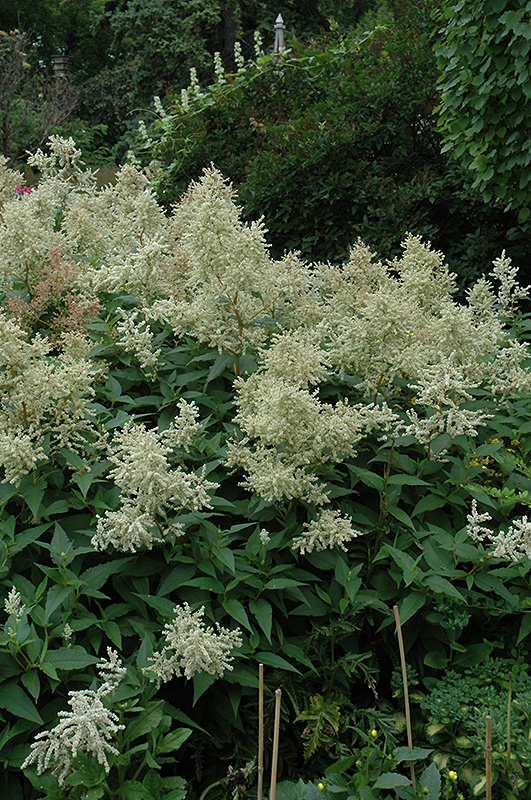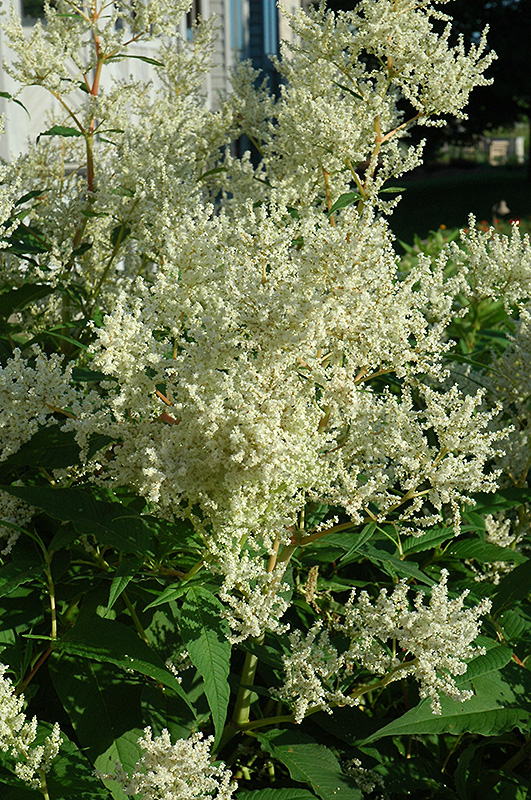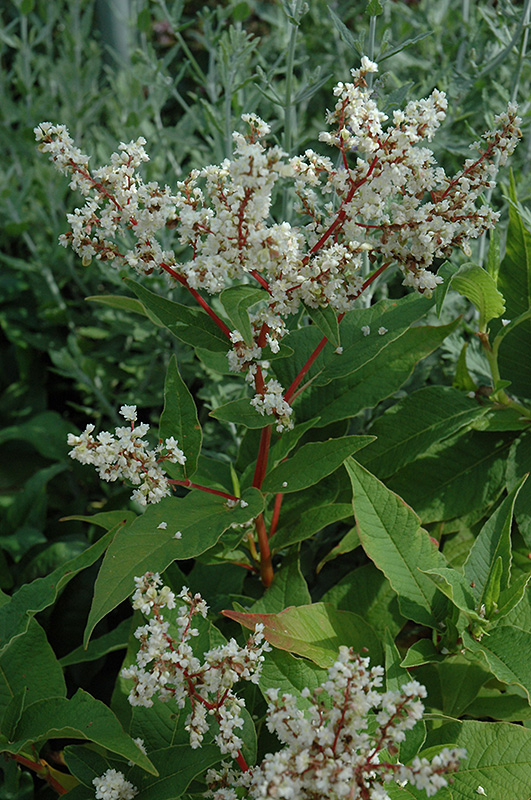Height: 4 feet
Spacing: 30 inches
Sunlight:
![]()
![]()
Hardiness Zone: 4a
Other Names: Knotweed, Snakeweed, Polygonum
Ornamental Features
White Fleeceflower features airy spikes of creamy white flowers rising above the foliage from early summer to early fall. The flowers are excellent for cutting. Its pointy leaves remain green in color throughout the season.
Landscape Attributes
White Fleeceflower is an herbaceous perennial with a mounded form. Its relatively coarse texture can be used to stand it apart from other garden plants with finer foliage.
This plant will require occasional maintenance and upkeep, and is best cleaned up in early spring before it resumes active growth for the season. Gardeners should be aware of the following characteristic(s) that may warrant special consideration;
- Spreading
White Fleeceflower is recommended for the following landscape applications;
- Mass Planting
- General Garden Use
- Groundcover
Planting & Growing
White Fleeceflower will grow to be about 3 feet tall at maturity, with a spread of 3 feet. When grown in masses or used as a bedding plant, individual plants should be spaced approximately 30 inches apart. It grows at a fast rate, and under ideal conditions can be expected to live for approximately 15 years. As an herbaceous perennial, this plant will usually die back to the crown each winter, and will regrow from the base each spring. Be careful not to disturb the crown in late winter when it may not be readily seen!
This plant does best in full sun to partial shade. It prefers to grow in average to moist conditions, and shouldn't be allowed to dry out. It is not particular as to soil type or pH. It is highly tolerant of urban pollution and will even thrive in inner city environments. This species is not originally from North America. It can be propagated by division.


